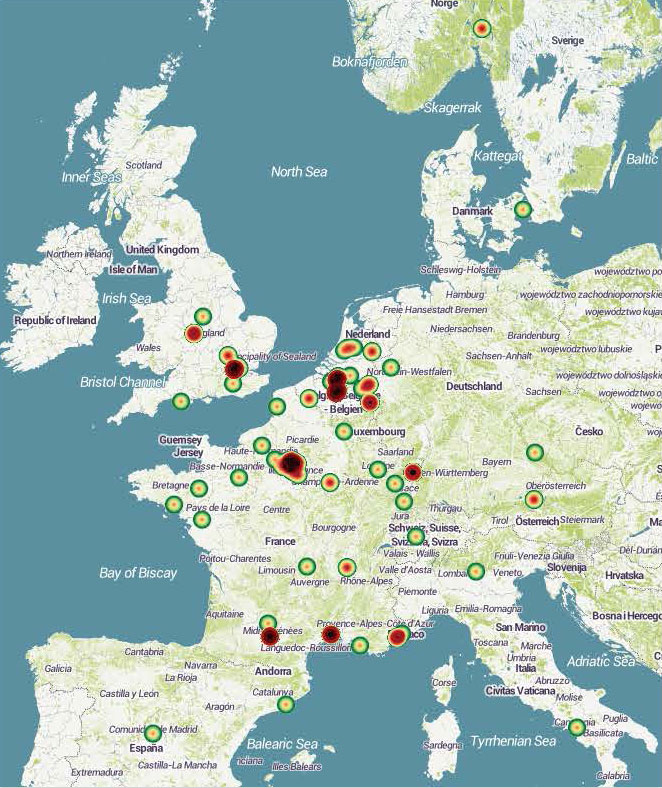About the Project
Domestic Legal and Social Responses to Global Islamist Terrorism
 Klausen, Jytte. “The Myth of Homegrown Terrorism,” The Georgetown Security Studies Review, Special Issue: What the New Administration Needs to Know about Terrorism and Counterterrorism, 50-60.
Klausen, Jytte. “The Myth of Homegrown Terrorism,” The Georgetown Security Studies Review, Special Issue: What the New Administration Needs to Know about Terrorism and Counterterrorism, 50-60.
Islamist extremism has proven a vexing problem in Western societies. Extremists glorify Osama Bin Laden, proselytize for fundamentalist Islam, and insist that there can be no accommodation between Islam and democracy. The promotion of terrorism poses a significant risk to domestic security. By funneling Western volunteers to fight in Islamist insurgencies, extremists also turn Western Muslims and converts to Islam into irregular combatants facing American and European troops abroad. Western extremists are now increasingly responsible for kidnappings and executions of Western diplomats, and civilians working as charity workers, contractors, and journalists abroad. Though these cases are few in number, they also have an outsized capacity to cause friction within Western democracies. They are a lightning rod for hostility to Muslims and stimulate Islamophobic perceptions of Muslims as a group. Researchers now blame them also for driving recruitment to far-right groups opposed to immigration in general, and to Muslims in particular.
Jytte Klausen's current work aims to facilitate informed debate about how to counter domestic Islamist extremism by providing an evidence-based analysis of how Al-Qaeda Islamist extremism took root in Western Europe and North America, and how it operates today.
Working with a small team of Brandeis graduate and undergraduate students, Klausen began in 2006 to develop a database of Western nationals associated with terrorist plots related to Al Qaeda. Combining different types of records, the Western Jihadism Project aims to facilitate archival and empirical study of the development and evolution of jihadist groups in Western democracies. The data collection was designed to enable the use of systematic social network analysis of the national and international communications structures deployed by Al Qaeda and ISIS to recruit Americans and other Westerners into a global network. ISIS and AQ activities include insurgencies in Muslim countries, terrorist strikes against Western targets, and the promotion and management of a militant politico-religious fringe movement. In 2021, Klausen expanded the scope of the database, rebranding as the Western Estremism Project in an effort to apply the same methodology towards more rigorously understanding the radicalization pathways of various other extremist ideologies.
In addition to the diversity of sources and data collection methods, the Western Extremism Project utilizes an interdisciplinary hiring approach to recruit students from various departments (including Politics, Computer Science, Sociology, Islamic and Middle Eastern Studies, and Economics). This provides the project with a variety of perspectives on key issues and enhances the overall quality of the data while allowing students to develop their unique trajectories post graduation. Lab alumni have gone on to work in various sectors including, but not limited to, Intelligence/Analysis, Law, Computer Science, and Academia.
In 2017, Klausen won a $731,000 grant from the Department of Justice's National Institute of Justice for collaborative research with Colorado State University to develop a risk assessment protocol. The project aims to help law enforcement identify individuals who demonstrate behavioral signs of radicalization. For more information, read Department of Justice awards $731,000 to Brandeis University and Colorado State University researchers to create a tool to predict terrorist radicalization.